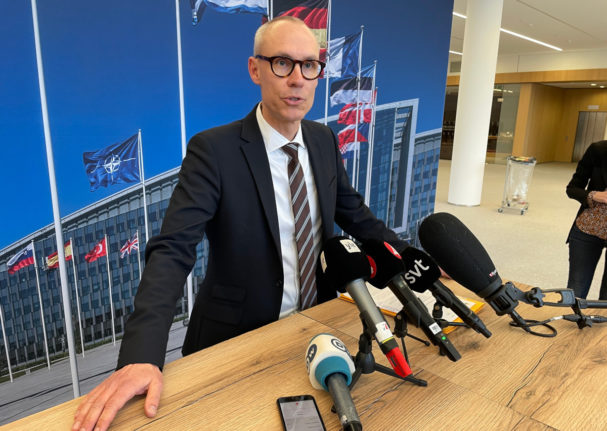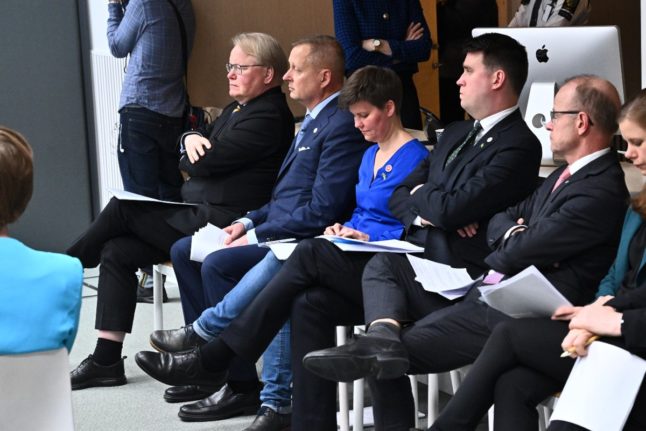Oscar Stenström was appointed to lead Sweden’s preparations to join Nato in the spring of 2022 by the then prime minister, Magdalena Andersson, with her successor, Ulf Kristersson deciding to keep him in the job when he took over as prime minister last autumn.
Stenström is now going to take a role with Wallenberg Foundations AB, which overseas the foundations started by various members of the Wallenbergs, Sweden’s leading industrialist family.
“My duties as Nato negotiator are now complete as a result of the deal in Vilnius,” Stenström said in a written statement. “Turkey has promised ratification. I look forward to my new duties in the Wallenberg network.”
Ulf Kristersson, Sweden’s prime minister, said he wanted to thank Stenström for his “extraordinary efforts” and for “the fact that he has completed the task which he began”.
“This continuity has been important. I am convinced that Oscar is going to be of great value even in the private sector.”
Paul Levin, head of Stockholm University’s Institute for Turkish Studies said it was still not certain that the country’s parliament will back Sweden’s Nato membership when it meets again in October, but said that Sweden still considered Stenström’s mission as completed.
“What you can say is that the negotiations, themselves, are over and that now it’s about implementing the agreements that have been reached, first in Madrid and then later in Vilnius, and that it’s no longer up to Oscar Stenström to lead a demonstration. I suspect that’s how they see it.”
Stenström began his carrier as a Social Democrat politician and official in his early 20s, becoming a Social Democrat member of his local county council in Skövde in 1994 and serving as International Secretary for SSU, the party’s youth wing, between 1998 and 2000.



 Please whitelist us to continue reading.
Please whitelist us to continue reading.
Member comments